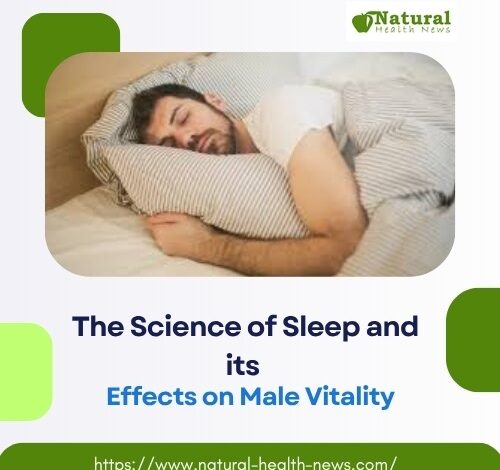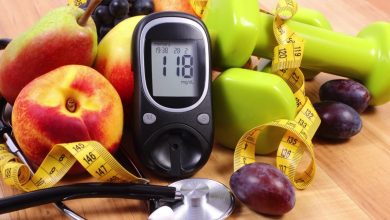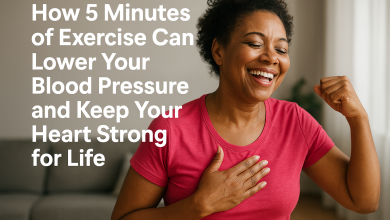The Science of Sleep and its Effects on Male Vitality

Do you wake up feeling refreshed and ready to take on the day, or do you constantly feel drained, even after a full night’s rest? Sleep is far more than just a period of inactivity; it’s a vital biological process that profoundly impacts every aspect of your health, especially your male vitality. As a medical professional with extensive experience in male health, I’ve seen firsthand how a lack of quality sleep can ripple through a man’s life, affecting his energy, mood, hormone balance, and even sexual function. Let’s explore the deep connection between sleep and your overall well-being.
The Unseen Work of Sleep: Why It Matters
When you sleep, your body isn’t just resting; it’s actively repairing, restoring, and regulating countless essential functions. Think of sleep as your body’s daily maintenance schedule. During this time, your brain consolidates memories, processes emotions, and clears out waste products. Your muscles repair and grow, your immune system produces protective cytokines, and your hormones rebalance. This intricate symphony of biological processes is crucial for maintaining optimal physical and mental performance throughout your waking hours.
Related Articles: Sleep Disorders Has an Impact Negatively on Driving Safety
One of the most significant impacts of sleep on male vitality revolves around hormone production. Testosterone, the primary male sex hormone, plays a critical role in energy levels, muscle mass, bone density, mood, and libido. Your body produces most of its daily testosterone during sleep, particularly during the deeper stages. If you consistently short-change your sleep, you disrupt this natural rhythm, potentially leading to lower testosterone levels. This decline can manifest as reduced energy, decreased muscle strength, mood changes, and a diminished sex drive.

Beyond hormones, sleep directly influences your cognitive functions. A good night’s sleep sharpens your focus, improves your problem-solving abilities, and enhances your creativity. Conversely, sleep deprivation makes you feel foggy, irritable, and less able to concentrate. This affects your performance at work, your relationships, and your general enjoyment of life.
Related Articles: How To Sleep Better At Night?
Your immune system also relies heavily on adequate sleep. During sleep, your body produces and releases proteins called cytokines, which help fight infection and inflammation. If you don’t get enough sleep, your body produces fewer of these protective cytokines, making you more susceptible to illnesses and slowing down your recovery time. A weakened immune system means more sick days and less time for the activities you enjoy.
How Sleep Deprivation Robs Your Vitality
Consistently poor sleep is a silent assailant on your male vitality. It’s not just about feeling tired; it’s about a cascade of negative effects that can significantly impact your quality of life.
Consider your energy levels. If you consistently feel fatigued, even after what you think is a sufficient night’s rest, your sleep quality might be the culprit. Chronic sleep deprivation leads to persistent tiredness, making everyday tasks feel like monumental efforts. This lack of energy can affect your motivation to exercise, pursue hobbies, and engage fully with your family and friends. You might find yourself reaching for excessive caffeine or sugary snacks just to get through the day, creating an unhealthy cycle.
Related Articles: The Dangers of Sleep Deprivation Are Very Real, Expert Warns
Your mood also takes a hit when you don’t sleep well. Irritability, mood swings, and increased stress are common consequences of insufficient sleep. This happens because sleep deprivation interferes with the brain’s ability to regulate emotions. You might find yourself more prone to anger, frustration, or sadness, which strains your personal relationships and diminishes your overall sense of well-being. Over time, chronic sleep problems can even contribute to symptoms of anxiety and depression.

We’ve already touched on testosterone, but it bears repeating: sleep is crucial for its production. Low testosterone can manifest in various ways, from reduced libido and erectile dysfunction to decreased muscle mass and increased body fat. If you experience these symptoms, poor sleep might be a contributing factor. Addressing your sleep habits can be a powerful first step in improving your hormonal balance.
Furthermore, sleep deprivation impacts your cardiovascular health. Studies show a clear link between chronic lack of sleep and an increased risk of high blood pressure, heart disease, and stroke. Your body uses sleep to repair and heal blood vessels. Insufficient sleep disrupts this process, putting added strain on your heart and circulatory system.
Your metabolism also suffers. Sleep deprivation can lead to changes in appetite-regulating hormones, making you feel hungrier and less satisfied after meals. This can contribute to weight gain and increase your risk of developing type 2 diabetes. You might also find that your body struggles to process glucose effectively, further impacting your metabolic health.
The Connection Between Sleep and Sexual Health
For many men, concerns about sexual health are closely tied to overall vitality. Sleep plays a significant role in this area. As I mentioned, testosterone production is largely dependent on quality sleep. Lower testosterone levels can directly impact your libido and contribute to erectile dysfunction.
Related Articles: The Benefits of Men’s Health Supplements for Health Performance
Beyond hormones, sleep deprivation also affects your mental state, which is crucial for sexual function. Stress, anxiety, and fatigue, all common outcomes of poor sleep, can dampen sexual desire and performance. When you are well-rested, you feel more relaxed, confident, and emotionally present, all of which contribute to a more fulfilling sexual experience.
While sleep is fundamental, some individuals explore options like natural supplements for premature ejaculation to support their sexual health. However, it’s essential to remember that addressing foundational aspects like sleep, diet, and exercise forms the bedrock of overall vitality.
Optimising Your Sleep for Enhanced Vitality
Now that you understand the profound impact of sleep on your male vitality, what can you do to improve your sleep habits? Here are some actionable steps you can take:
Related Articles: Men’s Health – Testosterone, Prostate Health, Fertility
- Establish a Consistent Sleep Schedule: Go to bed and wake up at the same time every day, even on weekends. This helps regulate your body’s1 natural sleep-wake cycle, known as your circadian rhythm. Consistency2 trains your body to expect sleep at a certain time, making it easier to fall asleep and wake up naturally.
- Create a Relaxing Bedtime Routine: Wind down before bed. This might include a warm bath, reading a book, listening to calming music, or practising meditation. Avoid stimulating activities like intense exercise or stressful discussions close to bedtime. A consistent routine signals to your body that it’s time to prepare for sleep.
- Optimise Your Sleep Environment: Make your bedroom a sanctuary for sleep. Keep it dark, quiet, and cool. Block out light with blackout curtains or an eye mask. Use earplugs or a white noise machine if noise is an issue. Ensure your mattress and pillows are comfortable and supportive. A cool room, generally between 18-20°C (65-68°F), is ideal for sleep.
- Limit Caffeine and Alcohol Intake: Avoid caffeine in the late afternoon and evening, as its stimulating effects can linger for hours. While alcohol might initially make you feel sleepy, it disrupts sleep quality later in the night, leading to fragmented sleep and less restorative rest. Limit your intake, especially in the hours leading up to bedtime.
- Be Mindful of Screen Time: The blue light emitted from smartphones, tablets, and computers can interfere with melatonin production, the hormone that regulates sleep. Avoid screens for at least an hour before3 If you must use them, consider using blue light filters or glasses.
- Get Regular Physical Activity: Regular exercise promotes better sleep. However, avoid strenuous workouts too close to bedtime, as this can be stimulating. Aim for moderate exercise earlier in the day. Even a brisk walk can make a difference.
- Manage Stress: Stress is a significant disruptor of sleep. Find healthy ways to manage stress, such as exercise, meditation, spending time in nature, or talking to a trusted friend or4 Practising mindfulness or deep breathing exercises before bed can help calm your mind.
- Watch Your Diet: Avoid heavy, spicy, or sugary meals close to bedtime, as they can cause indigestion and disrupt sleep. Instead, opt for a light snack if you are hungry. Hydrate adequately throughout the day, but reduce fluid intake closer to bedtime to avoid nighttime trips to the bathroom.
- Consider a Nap Strategy (If Necessary): If you need to nap, keep it short (20-30 minutes) and early in the afternoon. Long or late naps can make it harder to fall asleep at night. For some, naps can be beneficial, while for others, they can interfere with nighttime sleep. Experiment to see what works best for you.
Taking Control of Your Sleep
Improving your sleep is one of the most impactful things you can do to boost your male vitality. It takes commitment and consistency, but the rewards are substantial. You’ll experience more energy, improved mood, better hormonal balance, a stronger immune system, and enhanced sexual health.
If you consistently struggle with sleep despite implementing these strategies, or if you suspect an underlying sleep disorder like sleep apnoea or insomnia, consult your doctor. They can provide a proper diagnosis and recommend appropriate treatments. Remember, prioritising your sleep is not a luxury; it’s a fundamental requirement for a vibrant, healthy life. Take control of your sleep, and you’ll unlock a new level of vitality.





